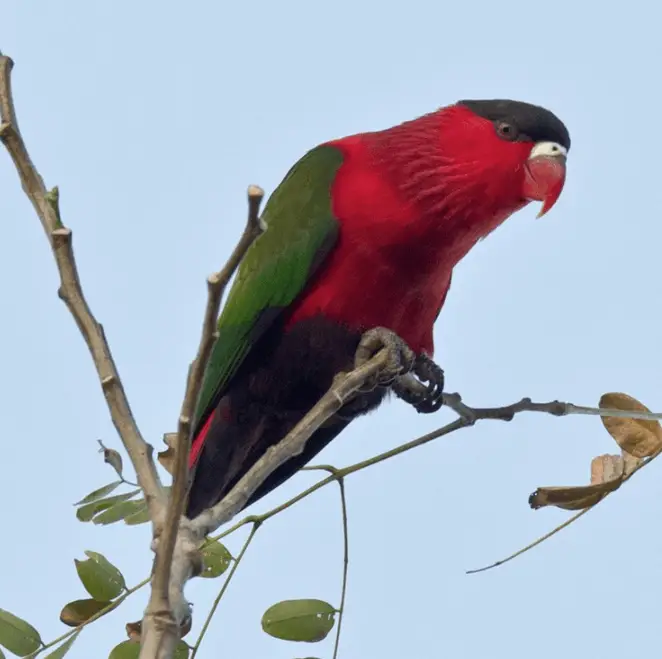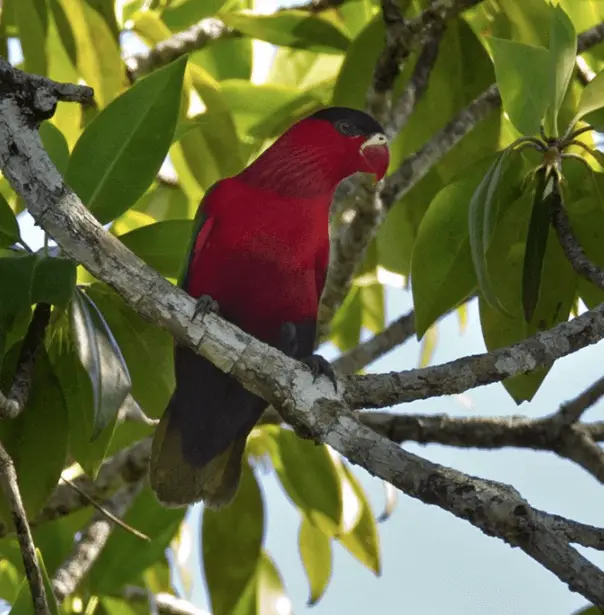
Purple-bellied Lory 26–27 cm; 137–240 g. Similar to L. lory somu but with cere white, no black on belly, tail distally deep blue-green. Immature has a brownish bill.
Race rosselianus pinker red below, streaked violet; devittatus slightly larger lacks black tips found on greater coverts of underwing innominate.
Editor’s Note: This article requires further editing work to merge existing content into the appropriate Subspecies sections. Please bear with us while this update takes place.
Forms a species group with L. Garrulus, L. domicile, and L. lory. The proposed species L. amabilis (Stresemann’s Lory) are probably described as an aberrant individual of the present species from New Britain (devittatus). Three subspecies were recognized.
Subspecies
Lorius hypoinochrous devittatus Scientific name definitions
Distribution
Lorius hypoinochrous hypoinochrous Scientific name definitions
Distribution
Lorius hypoinochrous rosselianus Scientific name definitions
Distribution
Distribution

Purple-bellied Lory
Editor’s Note: Additional distribution information for this taxon can be found in the ‘Subspecies’ article above. In the future, we will develop a range-wide distribution article.
Habitat
Coconuts apparently favored, but also make full use of original rain forests, mangroves, forest margins, tall secondary growth, and partially cleared areas, up to 750 m in Bismarcks and up to 1600 m in D’Entrecasteaux Is. Where overlaps with L. lory, more a bird of coastal non-forest vegetation.
Diet and Foraging
Purple-bellied Lory eat Fruit of the characteristic savanna tree Antidesma gaisambulla, flowers of Plerandra, blossoms, or very tiny fruits of coconut trees.
Sounds and Vocal Behavior
Purple-bellied Lory Voice quite distinctive, a harsh grating nasal note given at intervals, with only slight variations, such as “eeerr-arh” or “rheeeh”.
Breeding
Purple-bellied Lory Reputedly mid-year, with a nest, placed high in a huge tree.
SOURCE: obirds
Conservation Status
Not globally threatened. CITES II. Common to abundant throughout its range.



















